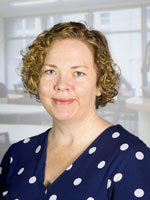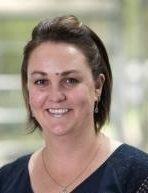Real advice from real nutrition experts
No Money No Time® is about healthy eating for the real world – yours.
No expensive, complicated recipes. No crazy, fad diets. No need for designer label kitchen knives.
What is healthy eating?
Eating healthy is not about going from one fad diet to another, it’s about choosing a diet plan you can stick to long term, while enjoying a wide variety of healthy foods from the 5 major food groups:
- Vegetables and legumes/beans.
- Fruit.
- Lean meats and poultry, fish, eggs, tofu, nuts and seeds, legumes/beans.
- Grain (cereal) foods, mostly wholegrain and/or high cereal fibre varieties.
- Milk, yoghurt, cheese and/or alternatives, mostly reduced fat.
No Money No Time® is here to help you cut through all the noise and debunk diet myths, while bringing you the recipes, tools, advice and credible nutrition information that makes healthy eating easy.
The advice, recipes and tools will be tailored specifically to the areas of your eating habits where you need the most help. How, you ask?
Your starting point is the Healthy Eating Quiz, which is developed by Professor Collins and the nutrition and dietetics research team at the University of Newcastle and featured on ABC, Triple J, The independent, Vitamania and more.
The Healthy Eating Quiz (HEQ) is endorsed by the Dietitians Association of Australia and first launched in 2012. Since then over 400,000 people from all over the world have completed it. It takes less than 10 minutes to do the HEQ. You then get instant personalised feedback and a report on your diet quality, with recipe suggestions and ideas to boost your HEQ score based on the information you give us.
But wait there’s more… As well as being able to save your HEQ report, your results will be stored in your personalised dashboard and we will recommended personalised goals to help you to improve specific areas of your diet. You can come back and visit us anytime to see how your HEQ score changes over time. Improvement in your HEQ score can help you to live healthier lives and reduce the risk of diet related disease later in life.
Why is healthy eating important?
Your HEQ score and personalised feedback report is based on the frequency and variety of healthy core foods you usually eat. This is important because no single food contains all the nutrients we need to stay healthy. Some foods are higher in nutrients than others and people who have a lot of variety in the foods they eat are more likely to be healthy and to stay healthy. In other words, if you can eat a large variety of vegetables as opposed to only 2-3 types of vegetables, the benefits are much greater. This type of diet also helps you to feel better, think better and perform better during your usual daily activities.
The Team
No Money No Time® has been developed by a multi-disciplinary team of Nutrition, Dietetic, IT and Computing researchers at the University of Newcastle and funded by nib Foundation’s Multi-Year Partnerships program*.

Laureate Professor Clare Collins is a Professor of Nutrition and Dietetics, and Director of Research in the School of Health Sciences at the University of Newcastle, and Director of Hunter Medical Research Institute, Food and Nutrition Program. Laureate Professor Collins has made major contributions to our knowledge on the impact of improving diet quality and food patterns on health and wellbeing outcomes.
She is also a well-known and highly sought after nutrition media commentator, with thousands of media interviews for radio, print, blogs and TV under her belt. She is a regular guest of Dr Karl on ABC, Triple J Science Hour and Shirtloads of Science. In 2018 she was a presenter for Catalyst and appeared on Ask The Doctor.
Professor Collins has authored books on nutrition for the public and is the most read author on The Conversation with over 70 articles and 8 million readers.

Dr Megan Rollo is an Accredited Practising Dietitian and Post-doctoral Research Fellow at the University of Newcastle. Her research centres on technology-assisted dietary intake assessment methods and personalised behavioural nutrition interventions. She is currently leading an inter-disciplinary UoN research team to develop and evaluate a new dietary assessment method using voice, images and sensor technologies with applications to low and lower-middle income countries and funded by the Bill & Melinda Gates Foundation.

Dr Lee Ashton is a Nutrition researcher at the University of Newcastle and is co-project manager on NMNT. His research focuses on using technology to help young Aussies to eat better and live healthier lives.

Professor Tracy Burrows is a Professor of Nutrition and Dietetics at the University of Newcastle, a published author, a conference presenter, a member of several health associations and is in the top 1% of Australian dietitians with an advanced accreditation title. She carries expertise in assessment of dietary intake, obesity management and the area of addictive eating.

Associate Professor Marc Adam is an Associate Professor in Computing and Information Technology at the University of Newcastle. In his research, Dr Adam focuses on the design and implementation of computing and information technology in different contexts.

Dr Megan Whatnall is a Post-doctoral researcher at the University of Newcastle, and an Accredited Practising Dietitian, contributing to NMNT content development and research and evaluation. Dr Whatnall's research focuses on the eating habits of young adults and university students, and developing and evaluating innovative and technology based interventions to improve eating habits and general well-being, and reduce chronic disease risk.

Ilyse Jones is the Business Development Manager for Nutrition and Dietetic Research at the University of Newcastle. Ilyse has over 15 years of experience in tertiary education administration and was awarded a Master of Business Administration in 2015.

Grace Manning is an Accredited Practising Dietitian and Graphic Designer. Her work primarily focuses on nutrition research communication and impact for the Food and Nutrition Research Program and No Money No Time team.

Hannah McCormick is an Accredited Practising Dietitian and Research Assistant at the University of Newcastle, working on content development for NMNT and supporting research projects in the Food and Nutrition Program.

Roberta Asher completed a Bachelor of Nutrition and Dietetics in 2010 after a 10-year career as a chef. Roberta is an experienced clinical dietitian and is currently completing her PhD at the University of Newcastle, researching cooking and nutrition education for young adults with intellectual disability.
Volunteers
No Money No Time is supported by a team of volunteers who help us by sharing their healthy recipes and food ideas, developing social media posts and preparing content for the NMNT website. Most of our volunteers are students undertaking a degree in Nutrition and Dietetics, and have firsthand experience trying to balance study and/or work commitments, family needs, a social life and staying healthy. We would like to acknowledge and thank all the contributions made by our volunteers.
You can find a list of the volunteers that have contributed to NMNT content here.
Program Partner
nib foundation is proud to be supporting the University of Newcastle’s online nutrition platforms sharing in our commitment to delivering innovative preventative health programs that make positive and lasting improvements on the physical, mental and social wellbeing of young Aussies.

Privacy
* Your privacy is very important to us. We will never share personal data provided by you to nib, nib foundation or any other company, organisation or individual without your permission. You can read our full privacy policy here.
Get in touch
For all enquiries, email us at nmnt@newcastle.edu.au.




